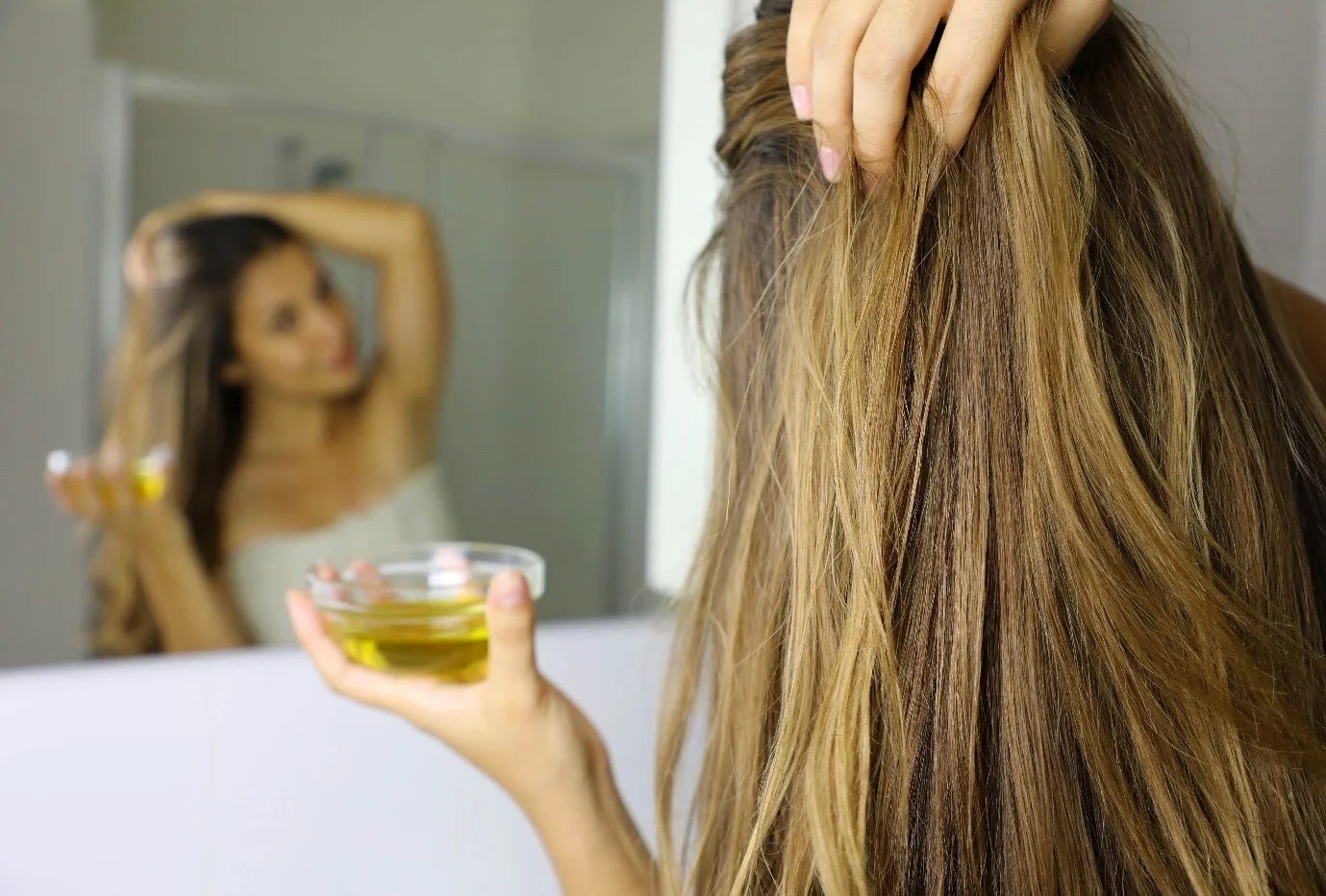Can Oiling Your Scalp Make It Itchier?
Using oil on your scalp and hair is a solution that most have been hearing since they were children. If you have an itchy scalp, apply oil. If you have lice, apply oil. If you have dry skin, apply oil. If you have dandruff, apply oil. And that is where the issues arise. If you use oil without understanding the cause of your problem, you can end up creating a bigger mess which is tougher to solve.

First, it’s important you understand the ecosystem of your scalp and hair. Your scalp is covered in sebaceous glands that release sebum or oil on a regular basis. These natural oils are secreted to coat your hair and scalp in a protective layer that reduces the damage caused by external elements. But the amount of oil produced can fluctuate based on various reasons such as hormonal changes, seasonal changes, stress, or even poor hair care. So, the condition of your scalp can vary and will require different amounts of applied oil for different situations.
Let’s look at the benefits of applying oil on your hair:
- Massaging it into your scalp can significantly improve blood circulation.
- It has moisturising properties and brings back the shine of your hair.
- Some oils can provide necessary vitamins and minerals that your hair might be lacking.
- It can strengthen your hair shaft and nourish the roots on your scalp. This can lead to a decrease in hair loss.
- By coating your hair, it can prevent swelling up of individual strands due to excess moisture. It also prevents your hair from becoming frizzy or dry.
- It can shield your hair and scalp from dirt, pollution, harmful chemicals and even UV exposure.
- Some oils can help with skin issues like dandruff, infection, or an itchy scalp.
Oils contain fatty acids that restore the lipid layers of your hair, increasing the health and vitality of your strands. But if you’re suffering from a condition like dandruff, applying the wrong kind of oil can be harmful to your scalp.
Why does my scalp itch after applying oil?
If this happens to you, it generally implies that you’re suffering from dandruff. This is a condition caused by a fungus called Malassezia Globosa. This fungus naturally occurs on your scalp and feeds on the oil that it finds. It breaks down the oil and creates oleic acid, which half of the world is sensitive towards. Your body reacts and breaks out into an itchy red mess accompanied by oily white flakes.
So, if you add more oil to a fungus that feeds on oil, it’s a recipe for disaster. This is the main reason for your oily and itchy scalp. Many people think that dandruff flakes are caused by a dry scalp and thus requires application of oil. But this is a big misconception, as dry scalp is not the same as dandruff even though it is accompanied by white flakes. Dandruff flakes are white-yellow and oily, clinging to your hair strands. It is generally accompanied by severe itching and red patches on your scalp.
Identifying the difference could be your way out of this predicament and help you understand the cause of dandruff. Dry scalp could definitely use light oiling, but dandruff needs careful consideration. When you apply oil to an oily scalp, it traps the natural oils that are being secreted. Along with this, dirt and germs also get trapped and end up clogging your pores. This allows the dandruff-causing fungus to multiply and increase your itching. This is the answer to ‘why does my scalp itch after applying oil’. In addition, excess oil can cause your hair roots to become weaker and lead to hair loss.
But you can still apply oil sometimes
Just because you have an itchy oily scalp does not mean that you can’t apply any kind of oil. It just means that you need to be smart about your selection.
Using essential oils like Argan oil, Tea tree oil, or Lemongrass oil, can be your answer on how to get rid of dandruff and itching. They bring anti-microbial properties that help remove the dandruff-causing germs and rebuild the natural barrier on your scalp. The effects can vary based on the ingredients you add to these essential oils. Always ensure that you do a patch test to see whether your body reacts negatively.
If you wish to use a carrier oil like Coconut oil or Jojoba oil, use it sparingly and only twice a week. Combine the carrier oil with an essential oil and apply a warm mixture to your head. Massage the oil into your head and cover it up for a while. You can possibly leave it overnight and wash thoroughly with a shampoo the next day. Avoid combing your oiled hair because it’s in a weakened state and can break off easily.
If you are careful and don’t overdo the oiling, your scalp should not itch as much. If you still wonder why my scalp itch after applying oil, you should shift to an anti-dandruff scalp shampoo that helps you get rid of your dandruff problem. Use the Head and Shoulders Supreme Scalp Rejuvenation shampoo with Argan oil to calm your itchy scalp. You can also try the Head and Shoulders Neem Shampoo or Lemon Fresh Shampoo which employs nature’s ingredients in the fight against dandruff. These solutions will finally allow you to stop worrying about oil and dandruff, and let you get on with your day.



